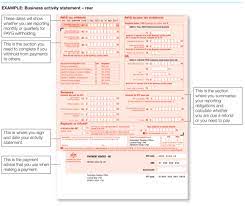Posts Categorized: News
5 key actions in 2023

There are always challenges but we seem to currently have our fair share. We currently see 5 key actions required to navigate 2023.
The question is what are you going to do about them? Are you going to let them control you? Or are you going to protect yourself from them to ensure your business or yourself personally doesn’t suffer?
We see 5 risk areas to navigate in 2023:-
- Cyber crime & computer safety.
- Inflation.
- Interest rates (and cash flow).
- Technology.
- Protect personal wealth that is otherwise exposed.
The degree to which these 5 risks affect you may be different to others and may be one or two don’t affect you. But doing nothing is rarely the best option. We therefore encourage you to attend our upcoming webinar on Tuesday 31st January at 5:30 during which we explore these risks – and more importantly, the 5 keys actions you can implement in face of them.
You can reserve your place by clicking here.
And as we are passionate about helping small businesses, we welcome your extending this invitation to family, friends and business colleagues.

SG deadline reminder

I trust you had an enjoyable festive season – and back into it we go! So here is a quick SG deadline reminder.
Friday 27th January is the end date for satisfying your Super Guarantee (SG) super obligations for the December 2022 quarter.
Please make sure you do not confuse this obligation with the December quarter BAS. The December quarter BAS automatically has a one month extension to 28th February to all. There are no extensions for reporting and payment of SG super.
Please note that super clearing houses take up to 8 days to pass the money through to the super fund. It therefore means that processing and payment to the clearing should be made as soon as possible.
And please make sure you have been calculating super at 10.5% since it increased on 1st July 2022.
SG super should never be paid late as late payments attract substantial interest and penalties. Furthermore, SG (and BAS) liabilities that remain unreported and unpaid after 3 months automatically become personal debts of directors.
We also take this opportunity to remind you of the imminent migration to Single Touch Payroll 2 with its extra reporting requirements. Please do not hesitate if you would like an introduction to a payroll specialist.
We welcome any questions you might have.
Important Director Identification Number (DIN) update

This has no doubt been caused by their phone systems being in meltdown. But finally we have some logical relief in having to apply for a Director Identification Number (DIN).
A DIN is required for all directors including those of trustee companies and trustees of self managed super funds.
A director is issued with a unique number irrespective of how many directorships are held.
Thankfully we finally have some common sense relief.
Those that were a director before November 2022 need not apply for a DIN if:-
- The sole or all companies of which one is a director are liquidated before 1st
- The sole or all companies of which one is a director are deregistered before 1st
- A deceased director (you would think this exemption would have bene in place for the start particularly given one of the stated aims of this system is to eliminate phoenix activity).
- Directors who have ceased due to losing capacity.
- Director who resign all directorships before 1st December. Please note though that it appears there is a carve out for this for those who try and re-appoint themselves after 30th November.
If you haven’t applied as yet for your DIN, please do so immediately.
The fine for not doing so is $13,200 and it will be recorded as a criminal offence. It remains to be seen what relief may be given – but don’t rely on that.
Need to no more? Then either call us or check this earlier blog (and related articles).
How you can make sure that your super doesn’t go to the wrong people

How you can make sure that your super doesn’t go to the wrong people? It’s a question anyone with super should ask themselves. Even if your balance is low, a life insurance payment can create a whole new scenario. Peoples biggest 2 assets are almost always their family home and their super. Your Will dictates who is to get our home if it is owned entirely in your own name. If it is owned jointly with your partner, then they will get your half should you pre-decease them; in other words it doesn’t form part of your estate. Your super though is held in trust for you. If your super is with a public fund (industry, retail, employer and so on) then it is up to their board trustees to decide who is to receive your super in the absence of a complying death benefit nomination. The trick is to have the right form of nomination in place. When it comes to self managed super funds, it can become of whole lot trickier. Not only do you need the right form of death benefit nomination in place, but you must be wary of the trust deed. As they are generic in nature, they don’t reflect your wants or desires. Moreover, they can confer general powers which are open to be used in inappropriate ways depending on how the cards fall. In an upcoming 30 minute webinar we will explore:-
The webinar will be held from 5:30pm on Wednesday 30th November. You can register by clicking on the following link – https://us02web.zoom.us/webinar/register/WN_Ov2inp73QdG955M_Bhk9Jg And as we are passionate about helping people to become more successful and secure, we welcome your extending this invitation to family, friends and business colleagues. |
Does your firm comply with Privacy Laws?

Does your firm comply with Privacy Laws? The recent Optus and Medibank privacy hacks have been alarming. They are also a clarion call to assess how your firm collects, holds and protects data.
And clearly what will happen next is that both laws and expectations will tighten. And tighten they will as our privacy and security requirements lag major countries and in particular Europe.
So what must you do?
Firms with group turnover in excess of $3,000,000 must comply and adhere to the 13 principles as set out the Privacy Act.
You can read more about those principles here
But those that handle Tax File Numbers (like tax agents) or medical records must adhere to these principles no matter what their turnover is. Credit reporting firms are also automatically covered by the Privacy Act.
So what does this mean you need to do
Not by all means a complete list, some of the key activities you should undertake are:-
- Consider what data you actually need.
- Consider how your team should best ask and collect personal data.
- Consider what data you hold is sensitive.
- Consider how long you should keep that data.
- Consider how you are going to keep that data – such for how long, is it going to be encrypted, who has access to it.
- Consider where you store data.
- Undertake regular cyber training.
- Adequately train team members on all requirements.
- Review regularly!
- And take out cyber protection insurance – we say this last as prevention is better than cure.
Please ask us if you would like a referral to a suitably qualified technical expert or cyber insurer.
Urgent ASIC DIN requirement

This is an urgent reminder to those directors who have yet to apply for their ASIC Directors Identification Number (DIN).
You now only have 3 weeks left in which to apply and receive your DIN.
Not obtaining one by the due date is a criminal offence and subject to a fine of $13,320.
It is also a civil offence which attracts a fine of $1,100,000.
We have progressively been publicising this obligation in our newsletters and remind you of our blogs which you can read at:-
19th October 2021 – click here re what is a DIN and your obligations.
8th February 2022 – click here for update on DIN requirements.
3rd April 2022 – click here for DIN obligations for first time directors.
At this stage it now appears too late to request a paper form and have it processed in time.
Online is the best way of applying. You can do so by clicking here.
However, if you have differences in your name as registered with different government authorities, it is best to ring 13 62 50 (and do so in the morning).
Please call us if you have any question – but above all else don’t leave this any longer – apply today!
Are you complying with your new landlord obligations?

Are you complying with your new landlord obligations?
There has been a lot of covid noise over the last 2 years so perhaps you might have missed this new obligation.
A landlord musty ensure a residential property meets basic minimum standards for leases entered into from 29th March 2021. It also applies to fixed term agreements that rolled over into periodical agreements after that date (that is leases that become monthly upon the end of the lease term).
There are 13 minimum standards (with a 14th of electrical safety from 2023):-
- Door locks
- Bins
- Toilets
- Bathrooms
- Kitchens
- Laundry
- Structural soundness
- Mould and dampness
- Window coverings
- Windows
- Lighting
- Ventilation
- Heating
It is your obligation as a landlord to ensure that these standards are met.
It has come to our attention that some agents are trying to circumvent this by just having the landlord sign something.
I would hate to think where such landlords would sit if something went wrong.
A proper way to attend you is to have your property inspected by a building inspector that way you fulfill your needs. You also have the added benefit of knowing your investment is in good condition or need of repair before it becomes more costly. How would you know or even know to identify if there was early termite infestation under the sub floor?
We have had dealings with a number of building inspectors across Melbourne and would be happy to give you an introduction.
You can also read more about landlord obligations at www.consumer.vic.gov.au/housing/renting
Are your PAYG or GST Instalments too high?

Quarterly BAS’s for the June 2022 quarter that contain GST or PAYG Instalments are due for lodgement this Thursday.
If your instalments for the year including June’s is close to the year’s actual liability then no action is required.
If either instalment is less then you will be asked to pay the shortfall by the time the 2022 Tax Return is lodged. You can though increase your June quarter instalment if you wish to not be sitting on the cash until May next year. This may also suit you if you are worried about not having the required funds when the shortfall(s) falls due.
But what if either instalment for June will take you well over what you are required to pay for the year?
If you do pay it, then it is not the end of the world as any excess amount will be refunded to you when the 2022 Tax Return is lodged. But why drain your funds in the meantime?
You are entitled to amend the instalment as issued by the ATO. But don’t get too carried away as the ATO does have the power to fine for gross under-estimates.
Do you think your instalments are too high? This is just one of the 67 items we address when undertaking pre year end reviews. So, if you are a client of ours then take comfort that we have already addressed this. If you are not a client, then we welcome a discussion.
I take the opportunity to state that the ATO has resumed normal operations. Since covid broke, they have not been chasing debts and lodgements. That has all changed as evidenced by the volume of letters and demands issued by the ATO since June. We have even heard of the ATO issuing Director Penalty Notices (DPN’s) to directors. DPN’s can be issued where a BAS obligation remains unreported and unpaid for more then 3 months. The scary part is that once issued, basically speaking, the only way to clear your now personal tax debt is to pay the tax due. Please don’t hesitate to call us if you are concerned about any request by the ATO.
June quarter employer obligations

There are a number of important employer obligations that you will need to satisfy by 28th July.
Whilst 28th July is the end date for paying the June quarter SG super, payments through clearing houses can take up to 6 to 10 days. We therefore recommend that you pay your June quarter super today if you have not done so already.
Those larger employers that are subject to Pay-roll Tax are due to certify the 2021/22 remuneration by 21st July. One needs to be careful as in addition to wages, salaries, commissions, directors fees, bonuses and so on, Pay-roll tax is also payable on:-
- Superannuation
- Some fringe benefits
- Payments to certain contractors (including some corporates).
Although you may have a WorkCover lodgement date as late as March next year, it would also be prudent to certify your 2021/22 WorkCover remuneration now.
We take this opportunity to remind you that 14th July was the due date for Single Touch Payroll finalisations (with extended dates for closely held employees).
We welcome any question you may have about these matters.
2022 tax planning tips

With 30th June fast approaching, here is a list of common tax planning strategies that we have been discussing with clients:-
- Prepaid revenue can be deferred to the extent that it relates to next financial year and where a customer has the contractual right to cancel the contract at any time.
- Buying items such as stationery, printer cartridges, stamps, etc by Thursday 30th Those of you who entered the Simplified Tax System (STS) by 30th June 2005 (who are therefore automatically assessed on a cash basis) may wish to pay any bills not due until July like your phone bill, rent, printing and stationery, etc. Paying your accounting fees is also recommended!
- STS taxpayers are now known as Small Business Taxpayers (SBTs). SBTs now include taxpayers with an annual turnover under $50,000,000.
- As we have previously highlighted, SBTs can claim a full deduction of any assets acquired. But they must be in your possession ready to use. And if this means installation, then it must be installed before July.
- For more on the instant asset write-off, refer to recent blogs titled Parts 1, 2 and 3.
- SBT taxpayers can also claim a full deduction for payments such as insurances, rent and the like which cost more than $1,000 even though the service period runs past 30thJune and into the next financial year.
- For those of you who receive this e-mail that are employees or rental property owners, you can claim a complete write off for assets costing less than $300.
- If a property is jointly owned, then you can claim the full cost of assets costing less than $600 (meaning you claim less than the $300 limit each).
- Investors can claim prepayments in full. An investor with a property or share loan can claim a deduction for 12 months prepaid interest. Please note that the ATO requires that for the prepayment to be claimed, one must benefit through a lower interest rate (for which you need to keep proof).
- For those who have already generated a large capital gain, consideration should be given to selling other investments that have an unrealised capital loss. Those with no or minimal employer SGC support could consider making a deductible contribution into superannuation to offset the tax on the capital gain (but speak to a financial planner first).
- If you are about to sell an asset which will generate a capital gain, consideration should be given to selling it after 30th This will defer the payment of any capital gains tax liability until as late as early June 2024.
- Companies can accrue a director’s fee which is not payable until the following financial year. Why? – the company gets a deduction in this financial year but the director is not assessed on the income until the following financial year in which it is received. The trick is to document it correctly.
- If you have stock, count it (a separate e-mail will be sent to business clients with stock). As stock can legally be valued differently from item to item and from year to year, it can result in some advantageous outcomes.
- Donations are deductible. It must be a genuine donation so you can’t receive anything in return. Raffle tickets can’t be claimed.
- Our tax planning checklist also considers other items such as writing off bad debts, making Division 7A loan repayments, whether a company can reclaim past tax payments under the loss carry back rules, distributing to a new beneficiary and varying PAYG Instalments. How these and other opportunities are employed depends on your circumstances. We identify what you can do by running through our 67 point checklist.
All of the above tax planning tips are explained to our clients in any easy to read Tax Planning Report. And to give you more control over your cash flow, that report also sets out your income tax payments for the next 12 months.
We welcome any query about these tax planning tips.
We end this blog by taking the opportunity to remind you of:-
- The need for those who were directors before November 2021 to apply for their Directors Identification Number by early October at the absolute latest.
- Single Touch Payroll reporting fields will greatly expand under what is called STP2 and there is much preparatory work to be undertaken. And with STP2 now to be shared with Fair Work Australia, you don’t want to be getting it wrong! We encourage you to adopt the new system as soon as possible as any extension only causes more work later. Please let us know if you would like a referral to a payroll expert.
